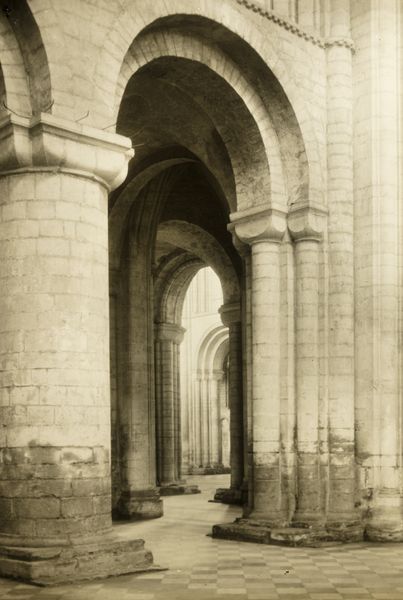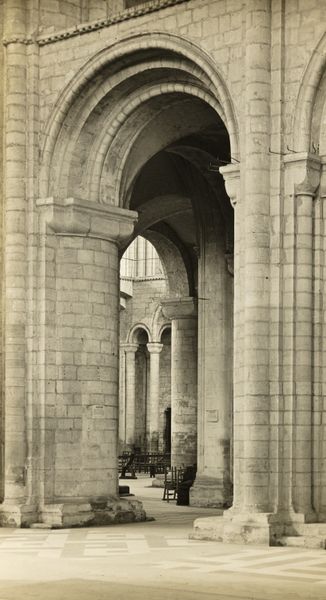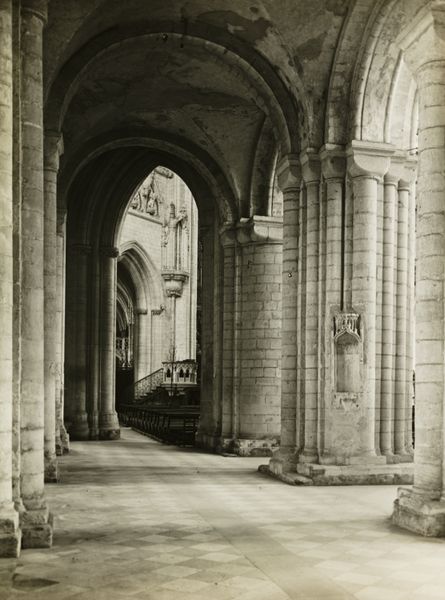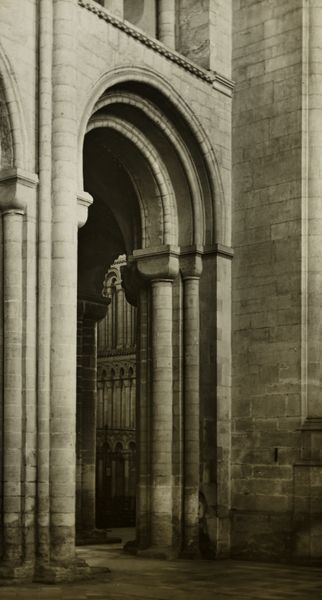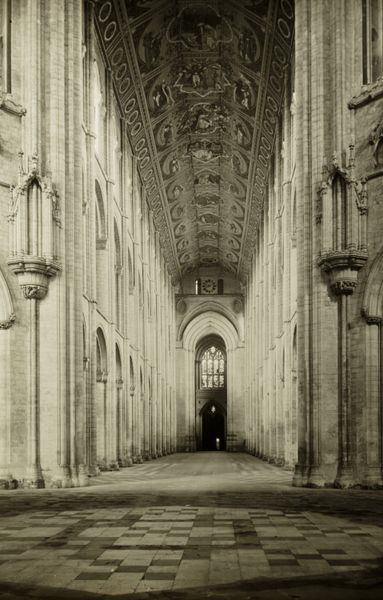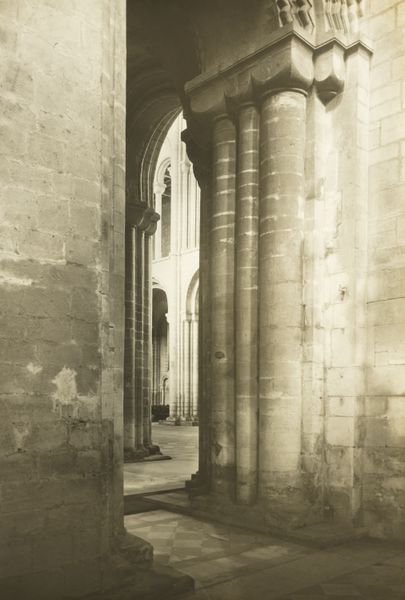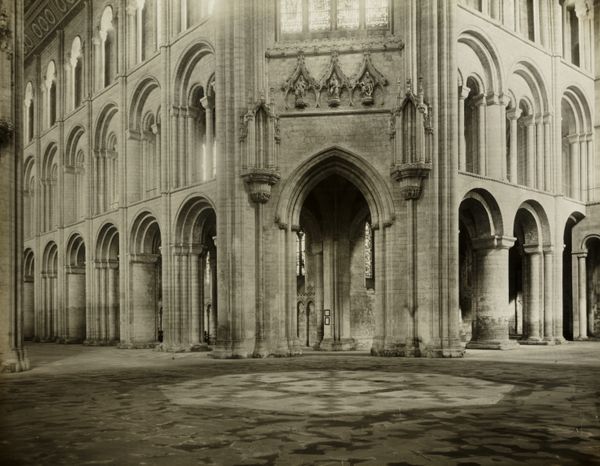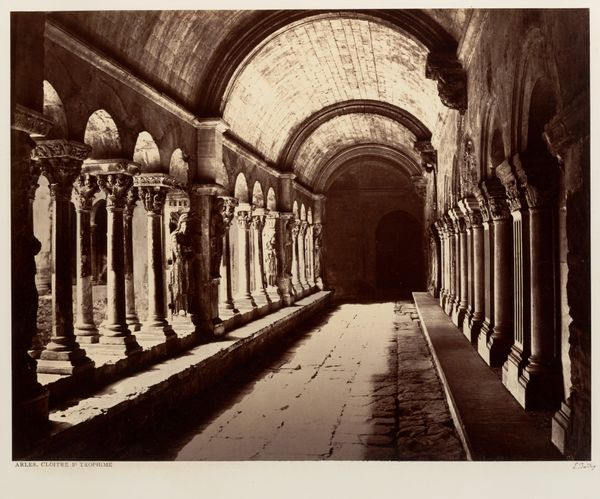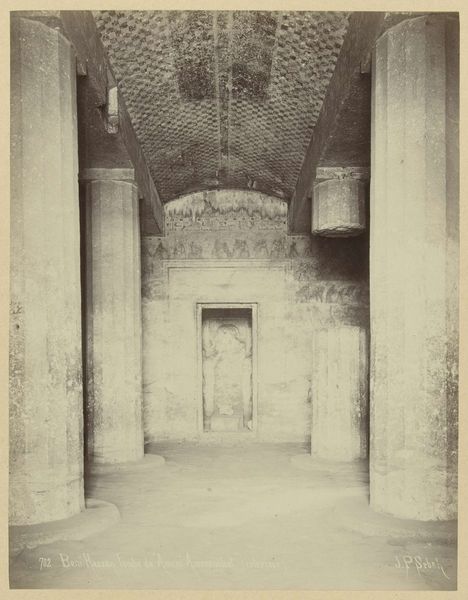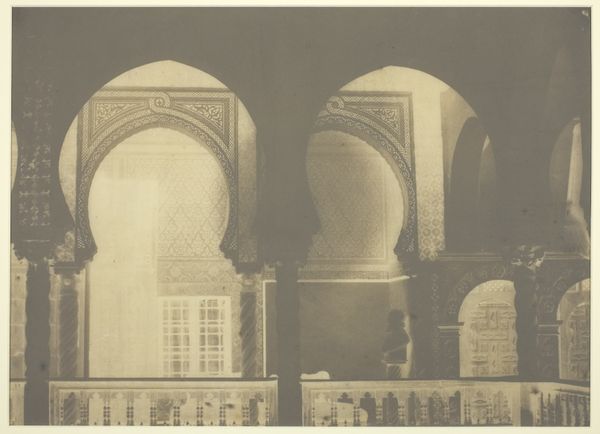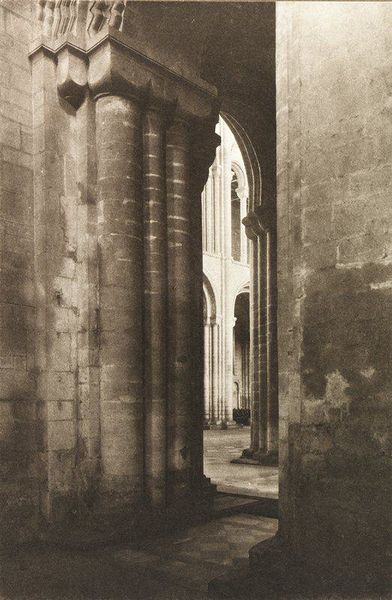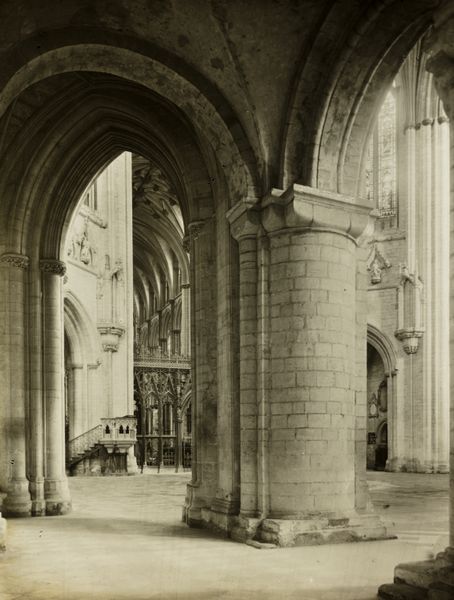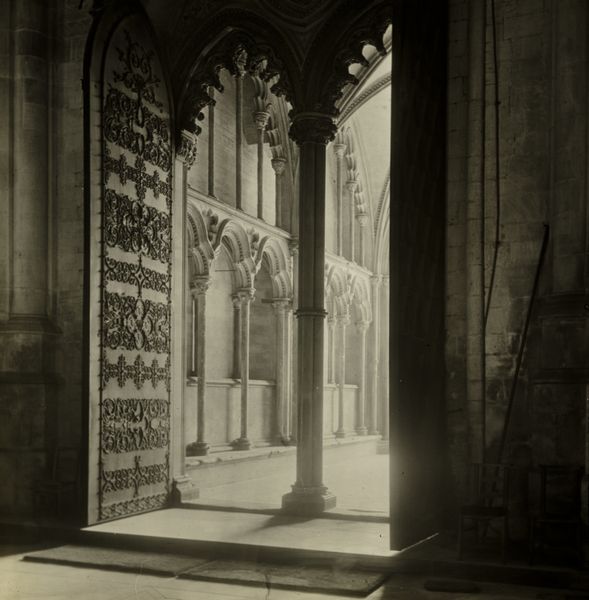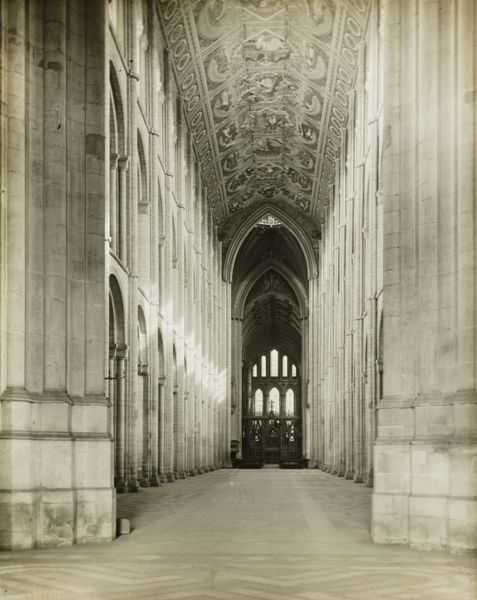
Ely Cathedral: South Aisle to East, from Southwest Transept 1891
0:00
0:00
photography, glass, architecture
#
16_19th-century
#
pictorialism
#
sculpture
#
landscape
#
photography
#
glass
#
england
#
19th century
#
architecture
Dimensions: 8.2 × 8.2 cm
Copyright: Public Domain
Frederick H. Evans made this platinum print of Ely Cathedral in the late 19th or early 20th century. Platinum prints were prized for their subtle tonal range and exceptional detail. Look closely at the image, and you'll notice that the stone walls and arches of the cathedral are rendered with remarkable clarity. This effect was achieved through a laborious process: first, a negative was created, then carefully printed on paper coated with platinum salts. The platinum particles sink into the paper fibers, creating an image of great depth and luminosity. The choice of platinum is significant. Unlike silver, a more common photographic material, platinum is highly stable, resistant to fading, and visually aligned with the monumental architecture it depicts. Evans's engagement with platinum printing reflects a desire to elevate photography to the status of fine art. He saw the potential for the medium to capture the essence of a place, not just its surface appearance. This approach challenges the traditional hierarchy between art and craft, highlighting the skill and artistry involved in photographic processes.
Comments
No comments
Be the first to comment and join the conversation on the ultimate creative platform.
